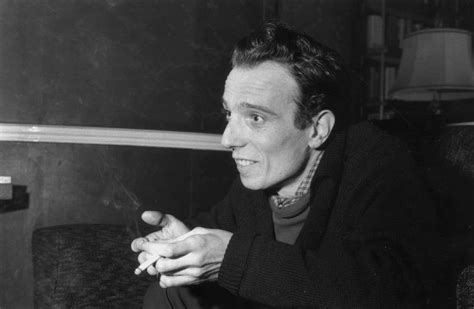A Quote by Marshall McLuhan
The reader is the content of any poem or of the language he employs, and in order to use any of these forms, he must put them on.
Related Quotes
The poem is not, as someone put it, deflective of entry. But the real question is, 'What happens to the reader once he or she gets inside the poem?' That's the real question for me, is getting the reader into the poem and then taking the reader somewhere, because I think of poetry as a kind of form of travel writing.
But I am not sure it would contain any short stories. For the short story is a minor art, and it must content itself with moving, exciting and amusing the reader. ...I do not think that there is any (short story) that will give the reader that thrill, that rapture, that fruitful energy which great art can produce.
It would be naïve to imagine that any analysis of experience is dependent on pattern expressed in language. Any concept, whether or not it forms part of the system of grammatical categories, can be conveyed in any language. If a notion is lacking in a given series, it implies a different configuration and not a lack of expressive power.
I hope any poem I've ever written could stand on its own and not need to be a part of biography, critical theory or cultural studies. I don't want to give a poetry reading and have to provide the story behind the poem in order for it to make sense to an audience. I certainly don't want the poem to require a critical intermediary - a "spokescritic." I want my poems to be independently meaningful moments of power for a good reader. And that's the expectation I initially bring to other poets' writing.
I keep feeling that there isn't one poem being written by any one of us - or a book or anything like that. The whole life of us writers, the whole product I guess I mean, is the one long poem - a community effort if you will. It's all the same poem. It doesn't belong to any one writer - it's God's poem perhaps. Or God's people's poem.
The meditative person can transform his sexuality without any antagonism. without any conflict. He is in deep friendship with all his energies, sexual or others; he is not in any fight. Why fight with your own energies? Love them, rejoice in them, and help them to transcend the lower forms, the animal forms. Let them move from the body towards the turiya, the fourth.
I don't think comics use iconic forms - or they don't have to. But that makes them even more "cool," if I understand the idea. One has to be quite involved to make comics work. Signals have to be decoded on both the verbal and visual level, simultaneously, and the reader must do a lot of cognitive work between panels as well. Comics definitely need an engaged reader.




































